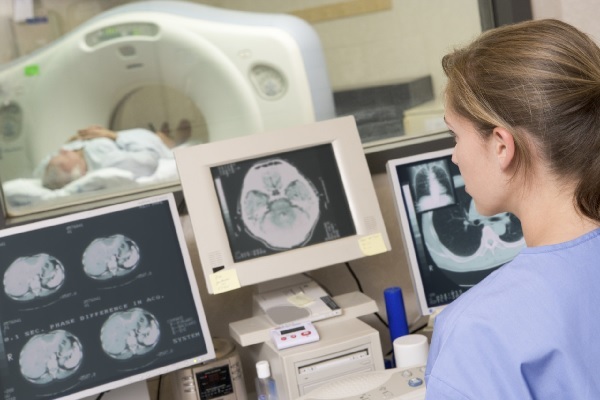Why a tunic in my head like a needle
Contents:
- Causes of colic in the head
- Vegeto-vascular dystonia, overstrain
- Poisonings of
- Endocrine system diseases
- Osteochondrosis
- Diagnosis
- Treatment of colic in the head
 Some face such a problem when they have a tunic in their head like a needle. Why does this sensation arise? Colic in the head appear in vascular pathologies of the brain, neuroendocrine disorders, lack of nutrients, organic brain disorders. How to get rid of them and what kind of doctor to turn to, this article will tell.
Some face such a problem when they have a tunic in their head like a needle. Why does this sensation arise? Colic in the head appear in vascular pathologies of the brain, neuroendocrine disorders, lack of nutrients, organic brain disorders. How to get rid of them and what kind of doctor to turn to, this article will tell.
Causes of colic in the head
Colic in the head - what is this phenomenon, and what are its causes? These sensations can appear suddenly, and sometimes provoked by certain factors, such as changing the weather, loud sounds. Often, these pains occur in women during pregnancy and premenstrual syndrome, as well as in meteosensitive people.
What is the cause of head colic? The main factors are:
- Disturbance of cerebral circulation.
- Overvoltage of the organs of vision.
- Neurocirculatory dystonia.
- Intoxication of various origins.
- Tired of working on the computer.
- Diseases of the endocrine system and internal organs.
- Hypoxic states, lack of oxygen in anemia, cardiovascular diseases.
- Drugs affecting blood clotting - oral contraceptives.
 Find out why there is a headache in the frontal and parietal parts of the head: the causes.
Find out why there is a headache in the frontal and parietal parts of the head: the causes.
Read why the headache after physical exertion: the reasons.
Vegeto-vascular dystonia, fatigue
More often, if colitis in the head, it means that the blood circulation is broken due to spasm of vessels or their excessive expansion. The symptom is manifested in psychological stress, irregular feeding and large breaks in food, dehydration. The triggering factors provoke an attack of neurocirculatory dystonia. Lack of sleep also becomes a trigger for colic in the head. Diets with caloric restriction can lead to unpleasant sensations - tingling.
The same disorder of vascular tone can be a consequence of craniocerebral injuries, catarrhal diseases, inflammatory processes in the paranasal sinuses of the nose and oral cavity.
Nervous overfatigue causes the vessels to narrow excessively, and inflammatory diseases, on the contrary, expand. With catarrhal diseases, tick-borne encephalitis, meningitis, there are painful sensations in the head that are associated with an increase in the permeability of the vascular wall caused by the enzyme hyaluronidase. Dangerous brain edema caused by inflammatory diseases of the brain, its membranes.
Working at a computer, written lessons lead to overwork of the eye muscles, and, as a consequence, to headaches. And also the colic of the head arises from overexertion of the facial muscles.
Poisoning
Alcohol, drug and other intoxications, can lead to increased fatigue, accompanied by stabbing headaches. Overdosing Aspirin( Acetylsalicylic acid), manifested tingling, a feeling of numbness. This phenomenon is called abusus headache.
Diseases of the endocrine system
Diseases such as diabetes mellitus, thyrotoxicosis, adrenal insufficiency or, conversely, their hyperfunction, can lead to colic in the head. Why is this happening? With diabetes, for example, there is a violation of the function of small vessels - capillaropathy. This affects the exchange of nervous tissue, a hypoxic condition caused by capillarotoxicosis, causes pain.
Thyrotoxicosis stimulates an increased consumption of oxygen from the blood by the nervous system, since it speeds up the energy metabolism of the body.
 Adrenal insufficiency leads to weakness and colic. The reason is circulatory disorders. Because the heart is hard to pump blood through vessels with a weakened tone, caused by a decrease in the sensitivity of these vessels to adrenaline and norepinephrine.
Adrenal insufficiency leads to weakness and colic. The reason is circulatory disorders. Because the heart is hard to pump blood through vessels with a weakened tone, caused by a decrease in the sensitivity of these vessels to adrenaline and norepinephrine.
Hyperfunction of the adrenal glands or hypercorticism, leads to an increase in blood pressure, since the secreted cortisol delays sodium, water. Renal diseases lead to prickly headaches due to both cerebral edema and increased renin. This hormone increases the lower arterial pressure, narrowing the blood vessels of the body and head.
Osteochondrosis
This is a degenerative disease of the osteoarticular system of the spine, in which the bone and cartilaginous tissue is affected. With cervical osteochondrosis, the arteries feeding the brain are often squeezed. As a result, stitching pains occur.
Diagnosis
If you experience unpleasant stitching in the head area, you should contact a neurologist. Measure pressure during pain attacks. In the case of strong and regular painful sensations, magnetic resonance diagnostics or ultrasound of the brain is used to exclude organic pathologies. Assign an electroencephalogram, a general blood test. When osteochondrosis, the cause of tingling is detected on an MRI or CT scan.
 Read why there is a headache when changing blood pressure: the mechanism of the development of pain.
Read why there is a headache when changing blood pressure: the mechanism of the development of pain.
Find out why your head hurts and your hands grow numb: common causes. All about an aneurysm of the brain: symptoms and consequences.
Treatment of colic in the head
If in the head of the tunic, various therapies are used. With vegetovascular dystonia use angioprotectors, such as Actovegin, Ginkgo biloba extract, Dihydroquercetin.
In cases of spasmodic headaches, vasodilators are used: Cavinton, Stugeron. To improve microcirculation and prevent thrombosis antiplatelet agents are used: Clopidogrel, Acetylsalicylic acid in prescribed doses.
If osteochondrosis has led to stabbing headaches, chondroprotectors are used: Mukosat, Alflutop, Don, Elbon. Miorelaxants and Asparks relax the spasms of the neck muscles, restoring blood flow to the brain along the arteries that go alongside the spine. Helps with osteochondrosis, as well as the reason for colic in the head, exercise and massage.
Colic in the head cause discomfort, however, as a rule, they pass by themselves and do not have any serious reasons. With regular pricking, it is necessary to consult a neurologist.
write the question in the form below:



